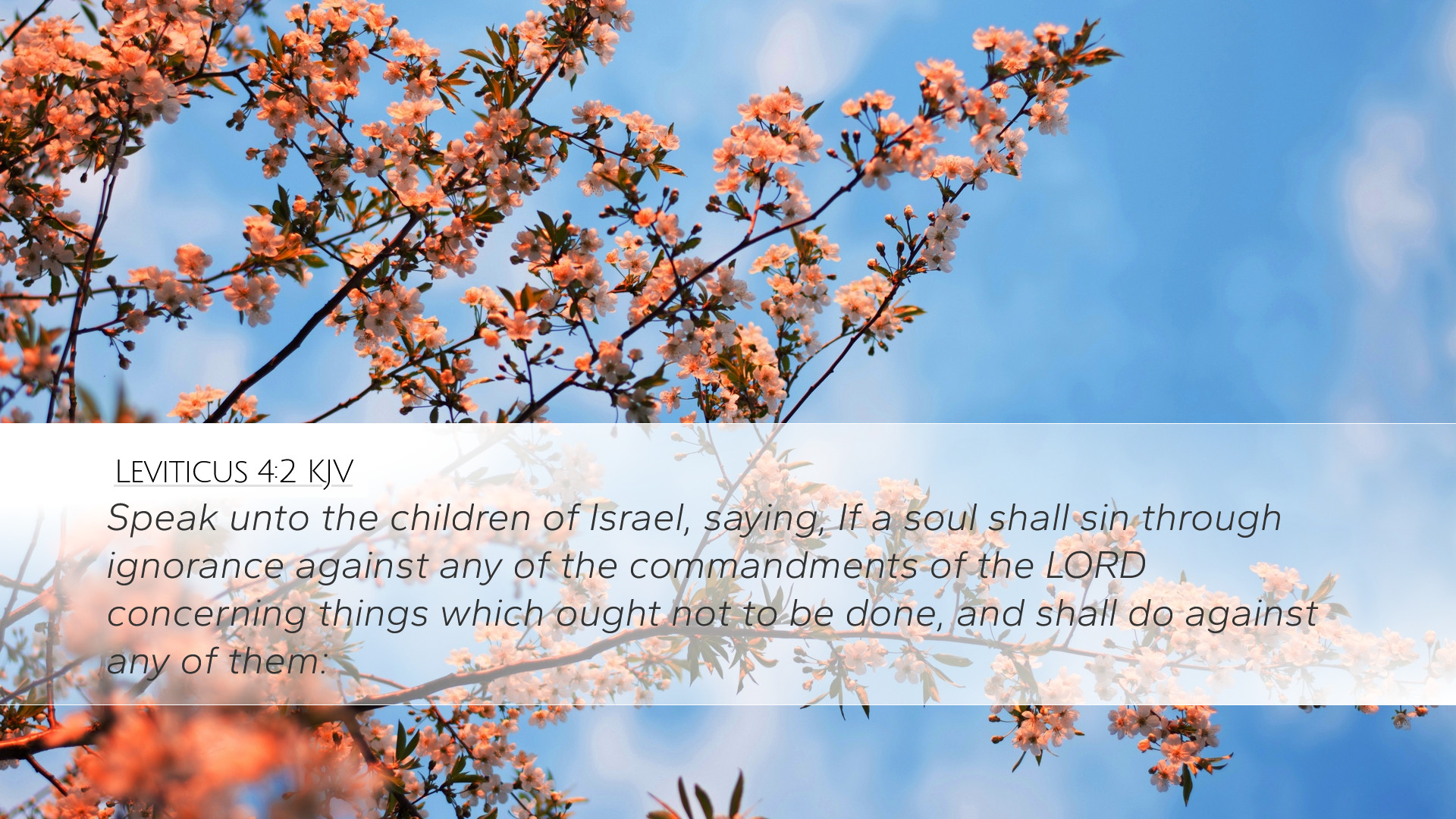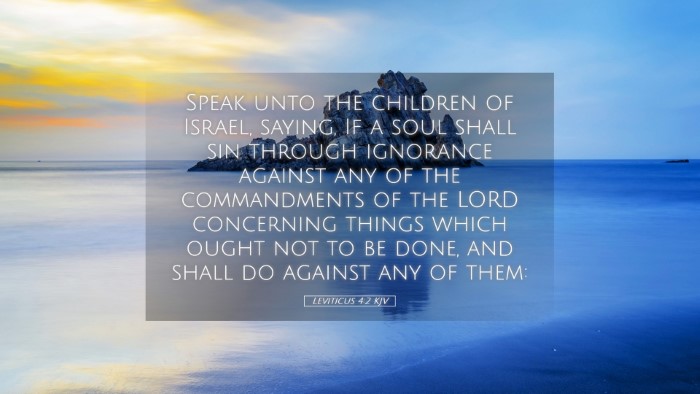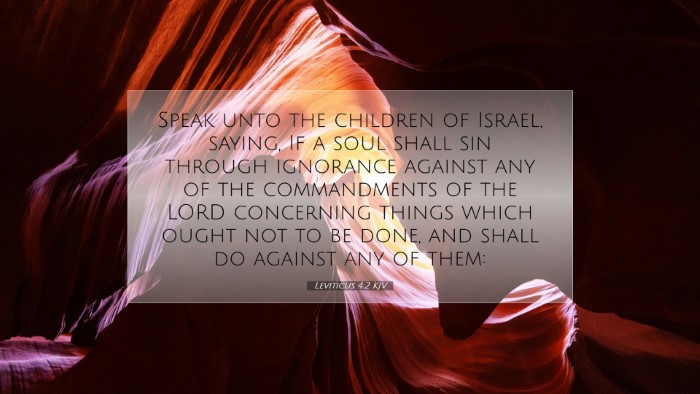Commentary on Leviticus 4:2
Verse: "Speak unto the children of Israel, saying, If a soul shall sin through ignorance against any of the commandments of the Lord concerning things which ought not to be done, and shall do against any of them."
Introduction
The book of Leviticus is primarily concerned with God's holiness, the sacrificial system, and the laws governing Israel's worship and life. In Leviticus 4:2, we encounter the legislation concerning unintentional sins, emphasizing God's provision for atonement and the seriousness with which He regards sin.
Exegesis and Theological Insights
This verse introduces the category of sins committed "through ignorance". The term "soul" or "person" indicates the individual responsibility before God. Here, we find profound insights into the nature of sin and atonement:
- Sin and Human Condition: Matthew Henry notes that this provision underscores the truth that even unintentional sins separate man from God. Ignorance does not exempt one from responsibility, reminding believers that sin can infiltrate the heart in subtle ways.
- The Holiness of God: Adam Clarke highlights that the commands of the Lord are to be taken seriously; any infraction, even those made unknowingly, is a violation of God’s holy standard.
- Provision for Atonement: Albert Barnes emphasizes the merciful response to human frailty. By providing a means of atonement for unintentional sins, God demonstrates His grace and desire for reconciliation.
Contextual Analysis
Leviticus is often seen as a manual for priests, detailing how they are to approach God on behalf of the people. This chapter particularly deals with the sin offering, a key component of Israelite worship:
- Cultural Setting: In ancient Israel, knowing and adhering to God’s commandments was paramount. Sins committed unintentionally still required atonement, signaling the seriousness of any transgression against divine commands.
- Liturgical Significance: Clarke points out that this instruction would form a crucial part of the temple ceremonies, reminding worshippers of the need for purity and sanctification.
The Nature of Ignorance and Sin
The phrase "through ignorance" raises important discussions on moral responsibility and conscience. Matthew Henry elaborates on the human propensity to err and the necessity of being vigilant in one’s spiritual life:
- Conscience and Accountability: Even sins committed unknowingly are acknowledged. The innocence of ignorance does not negate accountability before God; rather, it emphasizes the need for continual self-examination and learning.
- Spiritual Growth: Barnes points out that the acknowledgment of sins, even those committed through ignorance, is essential for growth in holiness and understanding of God’s character.
Application for Today’s Believers
For modern readers, this verse holds great relevance. The idea that God addresses unintentional sins encourages believers that there is grace even when we fall short:
- Importance of Confession: Just as ancient Israel was required to bring offerings for their sins, today’s believers are called to confess not only transgressions but also to seek growth in understanding God’s word.
- Grace in the New Covenant: While the sacrificial system has been fulfilled in Christ, the principles of accountability and the need for repentance remain. The grace of God in Jesus covers all sins—both intentional and unintentional.
Conclusion
Leviticus 4:2 serves as a foundational text that underscores the seriousness of sin, the necessity of atonement, and the character of God in His gracious provision for His people. Pastors, students, theologians, and scholars can draw rich insights on the profound nature of God’s holiness and the grace offered through confession and sacrifice.


